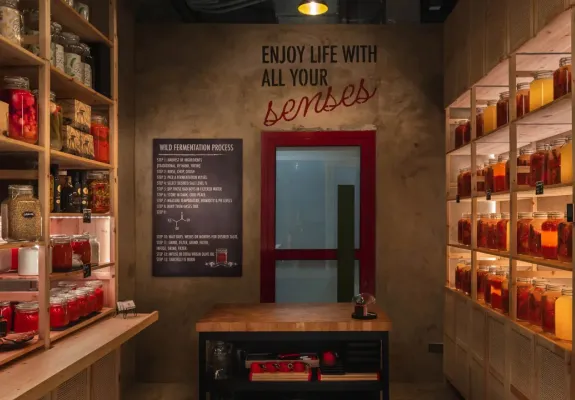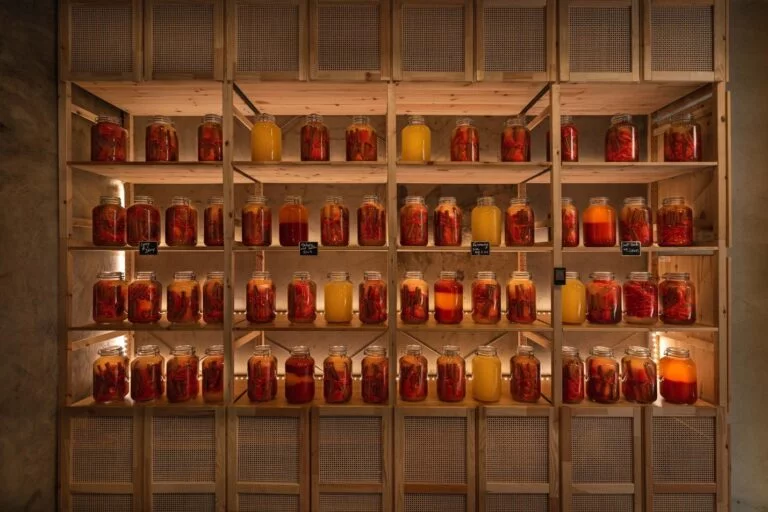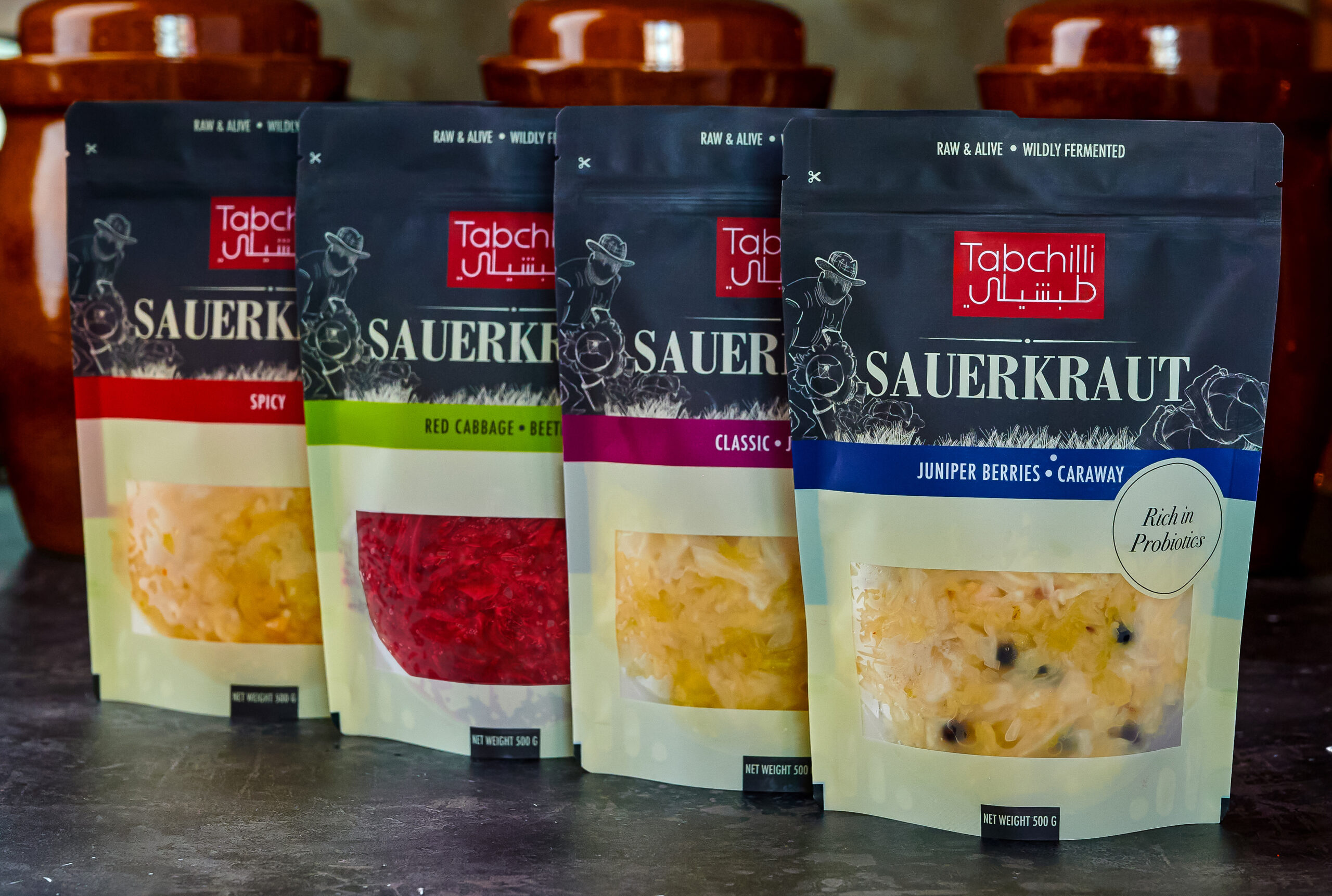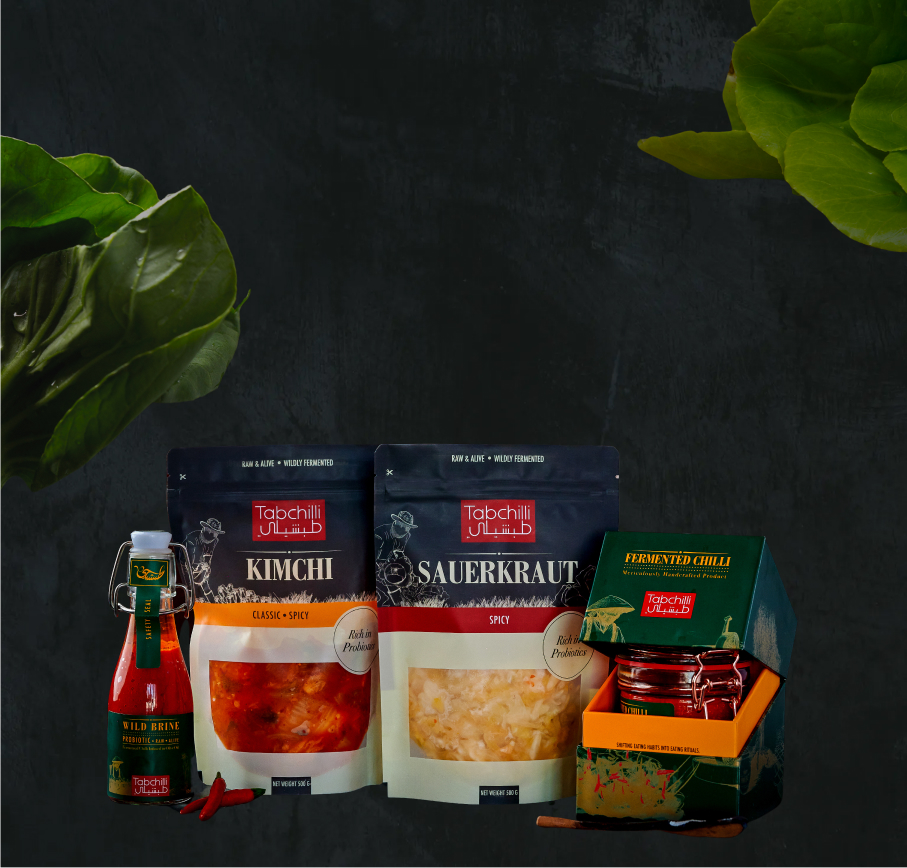Fermentation is one of the oldest food preservation techniques known to humanity, and its impact on global cuisine cannot be overstated. From ancient China to the Middle East and, more recently, to the bustling city of Dubai, fermented foods have been cherished for their unique flavors, health benefits, and cultural significance.

At Tabchilli, we carry forward this rich tradition, crafting products that honor the ancient art of fermentation while catering to modern tastes. This article delves into the fascinating history of fermented foods, their journey through the Middle East, and their growing popularity in Dubai, with a special focus on how Tabchilli is leading the way in this culinary revival.
The Global Origins of Fermented Foods
Fermentation has been used for thousands of years across different cultures and continents. The process, which involves the natural breakdown of sugars by bacteria and yeast, was likely discovered by accident but quickly became an essential method of food preservation.
Asia: In ancient China, as far back as 7000 BCE, people were fermenting rice, honey, and fruit to make alcoholic beverages. The practice of fermenting vegetables, particularly cabbage, also has deep roots in Asia, leading to the creation of kimchi in Korea and pickled vegetables in Japan.
Europe: Fermentation was equally significant in Europe. Sauerkraut, a type of fermented cabbage, became a staple in Germanic regions, while yogurt and kefir gained popularity in Eastern Europe. These foods not only preserved the harvest but also provided essential nutrients during long winters.
Africa: In Africa, fermentation has long been used to produce beverages like beer and porridge, as well as to preserve foods such as fish and grains. The process was crucial in regions where refrigeration was not an option, allowing communities to store food safely for extended periods.The Americas: Indigenous peoples of the Americas also practiced fermentation, particularly in the production of alcoholic beverages like chicha in South America. In Mesoamerica, the fermentation of maize led to the creation of pozol, a fermented corn dough drink.

The Middle Eastern Legacy of Fermentation
The Middle East, with its rich culinary history, has a deep connection to fermentation. For centuries, the region has been home to a variety of fermented foods and beverages that are still enjoyed today.
Dairy: One of the most prominent examples is the fermentation of dairy products. Yogurt, known as “leben” in Arabic, has been consumed in the Middle East for thousands of years. It is a staple in many Middle Eastern diets, valued for its creamy texture, tangy flavor, and probiotic benefits.
Fermented Vegetables: Pickles, or “torshi,” are another Middle Eastern favorite. Vegetables such as cucumbers, turnips, and eggplants are often fermented in vinegar or brine, creating a tangy, flavorful side dish that complements many traditional meals.
Bread: Fermented bread, particularly sourdough, has also been a part of Middle Eastern cuisine for centuries. The natural fermentation process not only leavens the bread but also enhances its flavor and digestibility.Fermented Beverages: In addition to dairy and vegetables, the Middle East has a history of fermenting beverages. Arak, a traditional alcoholic drink made from anise and grapes, undergoes a fermentation and distillation process. While alcoholic drinks are less common in the region due to cultural and religious practices, non-alcoholic fermented beverages like kombucha are becoming increasingly popular.

The Emergence of Fermented Foods in Dubai
Dubai, with its melting pot of cultures and cuisines, has embraced the global trend of fermented foods. As more people in the city become aware of the health benefits of probiotics and fermented products, the demand for these foods has grown.
Health Consciousness: The rise of health-conscious eating in Dubai has played a significant role in this trend. Residents and visitors alike are seeking out foods that support gut health, boost immunity, and enhance overall well-being. Fermented foods, rich in probiotics, fit perfectly into this narrative.
Culinary Innovation: Dubai’s food scene is known for its innovation and willingness to experiment with new flavors and techniques. This openness has paved the way for the introduction of various fermented foods from around the world, from kimchi and kombucha to kefir and miso.
Local Adaptation: While Dubai is a hub for international cuisine, there is also a growing interest in adapting traditional Middle Eastern foods to include fermentation. This fusion of old and new is creating exciting culinary possibilities, blending the region’s rich heritage with modern health trends.
Tabchilli: Reviving Fermentation in Dubai

At the heart of Dubai’s fermented food movement is Tabchilli, a brand dedicated to bringing the best of traditional fermentation to the city’s vibrant food scene. Our products are crafted with care, using time-honored techniques to create flavors that are both familiar and new.
Our Products: Tabchilli offers a range of fermented foods that cater to diverse tastes and dietary needs. From our signature fermented hot sauce, which blends the heat of chili peppers with the tanginess of fermentation, to our probiotic-rich sauerkraut and kimchi, each product is designed to deliver maximum flavor and health benefits.
Commitment to Quality: We take pride in using only the highest quality ingredients in our products. Our fermentation process is carefully monitored to ensure that each batch is packed with live probiotics and bursting with flavor. Whether you’re looking for a spicy kick or a tangy bite, Tabchilli has something to satisfy your palate.
Education and Community: At Tabchilli, we believe in more than just making great food; we’re passionate about sharing the art of fermentation with our community. Through workshops, events, and educational content, we aim to demystify the fermentation process and inspire others to explore the benefits of fermented foods. We offer workshops where participants can learn to make their own fermented foods at home, fostering a deeper connection to the food they eat.
Sustainability: We are also committed to sustainability, using fermentation as a way to reduce food waste. By turning surplus vegetables into delicious, long-lasting products, we contribute to a more sustainable food system. Our products are not only good for your health but also for the planet.
Conclusion
The history of fermented foods is a testament to human ingenuity and the desire to preserve and enhance the food we eat. From ancient times to the modern day, fermentation has played a crucial role in shaping global cuisine. In Dubai, this tradition is being revitalized, with Tabchilli leading the way in crafting high-quality, probiotic-rich products that honour the past while embracing the future. Whether you’re new to fermented foods or a seasoned enthusiast, we invite you to explore the delicious world of fermentation with Tabchilli and discover how our products can enhance your health and culinary experience
1% of each order supports children with juvenile arthritis.